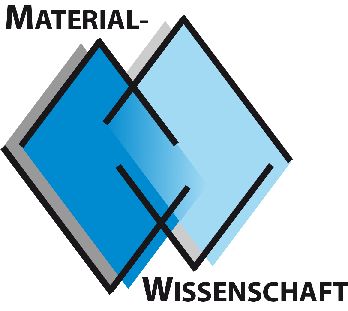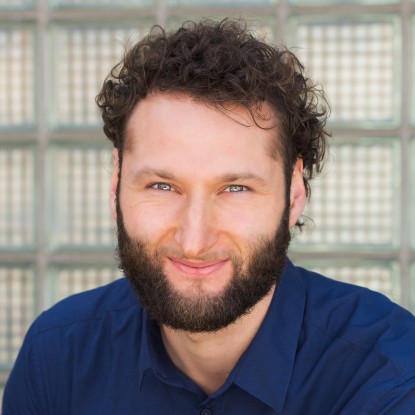Top performances at the 36th MINT Erfinderlabor
Young talents for materials research
2024/07/11 by Magdalena Schmitt / Ruben Bischler
For one week, 15 students from Hesse and one student from the German Embassy School in New Delhi, India, immersed themselves in the fascinating world of tomorrow's materials at TU Darmstadt and at Merck – for a climate-neutral and resource-conserving future.

Creative, exciting and easy to understand: This is how the exceptional talents presented the fruits of their research into high-performance materials for the energy transition to guests from schools, industry and science at the Merck Conference Center on 5 July. “Sustainability is a topic that concerns us all,” said Prof Dr Heribert Warzecha, Vice President at TU Darmstadt, to the participants of the ZFC's STEM Erfinderlabor (inventors' lab). The highschool students are the future of society and are in a position to find solutions to the major challenges facing society. The young men and women won through against 126 other applicants with top grades in a rigorous selection process thanks to their outstanding academic achievements. All of them are in the career orientation phase and have a pronounced penchant for the STEM subjects of maths, IT, science and technology.
Magnets are like magic, only cooler!
How can magnets save the climate? Will we one day be able to travel from Darmstadt to Florence on holiday with a single, fully charged battery? The young men and women presented the results of their laboratory experiments in the form of such vivid questions. They had spent a week working in groups of four on cutting-edge research topics in materials science that are usually only dealt with in higher university semesters. They worked on the chemistry of corrosion for climate protection, a new generation of solar cells, batteries with a higher energy density and energy-efficient soft robots that can be controlled by magnetic fields – “like magic, only cooler”, as one participant put it. Experienced scientific staff from TU Darmstadt were on hand to supervise the event.
Well-trained minds with STEM assessment expertise
Dr Thomas Schneidermeier, Director of the Zentrum für Chemie (Centre for Chemistry)
The 36th Erfinderlabor was organised by the Zentrum für Chemie e.V. (ZFC, Centre for Chemistry) in cooperation with the Institute of Materials Science at TU Darmstadt, Merck, the State Energy Agency of Hesse, the VCI Hesse, Spektrum der Wissenschaft and the Hessian Ministry of Education, Culture and Opportunities. “Well-trained minds are needed to tackle the climate crisis. The foundation for securing STEM specialists must be laid at school by integrating highly up-to-date topics into regular lessons,” said Dr Thomas Schneidermeier, CEO of the ZFC, explaining the association's mission. The ZFC is also concerned with highlighting career options in the STEM field and equipping young people with STEM assessment skills so that they can categorise headlines circulating in various media: What is fake and what is true? “Making a judgement is often not easy,” says Schneidermeier, “but it is possible with STEM knowledge.”
Experiments, university life and teamwork
The workshop offered participants authentic insights into university life and teamwork at the Institute of Materials Science. “The inventors' lab was a really enriching experience,” summarised student Matthis Eisenreich from Offenbach. Cara Herzog was enthusiastic, too: “I got super exciting insights into research and was able to use equipment that was really fascinating,” said the student from Frankfurt. She summarised: “The week was really cool!” The commitment of the supervisors was also well received by the participants. They “organised the week perfectly”, said student Philipp Laudi from Geisenheim. Another highlight was the communal atmosphere among the participants. “I will remember the eventful week in the Erfinderlabor in particular because of the great group work,” said Julia Grimm from Seeheim-Jugenheim.
Research-based learning at the TU Darmstadt
Prof Dr Heribert Warzecha, Vice President for Studies, Teaching and Diversity, TU Darmstadt
“You are the ones who can develop solutions to challenges such as the climate crisis,” said Prof Dr Heribert Warzecha, Vice President of TU Darmstadt, to the students. Darmstadt is the perfect starting point for this. “We are a City of Science for a reason. The university, industry and research institutes work closely together here.” At the TU, degree programmes such as “Energy and Environment”, “Matter and Materials” and “Information and Intelligence” are not just about acquiring “dry” knowledge in lectures. Above all, experiments are carried out and interdisciplinary collaboration is facilitated. “We do research-based learning,” says Warzecha. “I would be delighted to welcome you to the TU in the near future.”
The climate crisis presents our society with major challenges
Dr Thomas Eberle, Merck, Head of Educational Partnerships
Dr Thomas Eberle from Merck also emphasised that “the climate crisis presents society with major challenges.” He was delighted that 16 young adults had set off for a week on the trail of a more sustainable future. “Sustainability is also a major topic at Merck,” said Eberle, who is responsible for STEM promotion at the science and technology company. It's not just about sustainable production, he explained, but also about translating sustainability into products. One example is switchable glass that can replace blinds: At the touch of a button, these change from transparent to semi-transparent – the light still gets through, but the heat is blocked out. “We need you to develop products like this,” Eberle told the students.
Valuable feedback for your future career
Following their presentations, all pupils received feedback. What went particularly well? Is there still room for improvement? Prof Dr Lambert Alff, an expert in thin films at TU Darmstadt, said: “You were brimmed with enthusiasm. That is transferred to the audience, that's how you take your listeners with you.” Gregor Disson, Managing Director of the Hesse Chemical Industry Association (VCI Hessen), praised the exciting introduction to the topic, which the speakers picked up on again at the end of the presentation. “It was a well-rounded event.” Tanja Scharnhoop from the LandesEnergieAgentur Hessen (LEA) was also impressed. “Great visualisation and easy to understand,” she summed up. She particularly liked the fact that the speakers had made a connection to the audience's everyday lives. And Dr Thomas Eberle from Merck emphasised: “You presented your topic with absolute confidence. I am thrilled!”
Insights into STEM professions and studying materials science
Dr Anne Kikker from TU Darmstadt gave a presentation on studying materials science – particularly interesting for the students who attended the graduation event as guests and are still considering what to do after leaving school. “The subject is a chameleon. During your studies, you move between the various STEM disciplines,” says Kikker, “which is why we like to call the degree programme 'Best of STEM'.” There is also the unique option of a junior degree programme at the TU: pupils can take part in lectures and laboratory practicals and earn credit points even before they graduate from high school. Interviews with Dr Holger Heil from semiconductor research at Merck and Iona Petria, who is studying materials science in his fourth semester, also served to provide study and career guidance.
Explanatory videos, shorts and reels make learning easier
It wasn't just the students' presentations that were highly topical and exciting. The innovative ZFC format “Ask the MINTies” was presented, too: in creative clips on various social media channels, former Inventors' Lab participants who are now studying in the STEM (German: MINT) field and two of whom – Joelina Gärten and Benjamin Kunkel – also eloquently moderated the closing event, present current topics relating to future technologies and the energy transition, such as biodegradable plastics or green steel. The clips complement teaching sequences developed by the ZFC – always with a view to current and future social challenges. Kunkel also presented the “do-MINT!” AG, in which pupils from Year 8 onwards independently develop practical applications of lesson content at Goethe-Gymnasium in Bensheim. “For example, we built a wind turbine,” said Kunkel and emphasised: “The format can be adopted by other schools.”
Great cooperation
Dr Schneidermeier thanked the “committed partners” of the ZFC for the “great cooperation” and the supervisors from the TU, without whom the whole thing would not have been possible. “Many people have worked together,” said Schneidermeier. “I would especially like to thank the students who worked hard in the lab for a week”. Together with his colleague Magdalena Schmitt, Schneidermeier presented everyone with a certificate and an annual subscription to the magazine “Spektrum der Wissenschaft”.
The Institute of Materials Science would like to thank all participating students as well as the partners who organised the inventors' lab – and last but not least the scientists from the institute's research groups who competently supervised the students and thus contributed significantly to the success of the event.
Background to the Erfinderlabor
The Erfinderlabor is part of the ZFC initiative “Schule 3.0 – MINT for Future”, supported by the LandesEnergieAgentur Hessen GmbH (LEA Hessen) and others. The aim of the initiative is to integrate future technologies such as digitalisation, artificial intelligence, the energy transition and drug development into regular school lessons in combination with basic knowledge in order to provide vocational orientation in specialist lessons. The “School 3.0” initiative also aims to empower young people to use STEM knowledge to recognise fake news spread online. The Zentrum für Chemie e.V. (Centre for Chemistry, ZFC) is a registered non-profit association. For 20 years, the ZFC has been running STEM projects for pupils aged 8 to 19 in cooperation with schools, universities, companies, associations, foundations and ministries in order to combine traditional teaching content with professional fields in the STEM sector. The integration of socially relevant issues into regular lessons enables better professional orientation, thus contributing to securing STEM skilled labour and allowing news to be classified with STEM knowledge. Further information: www.z-f-c.de.


